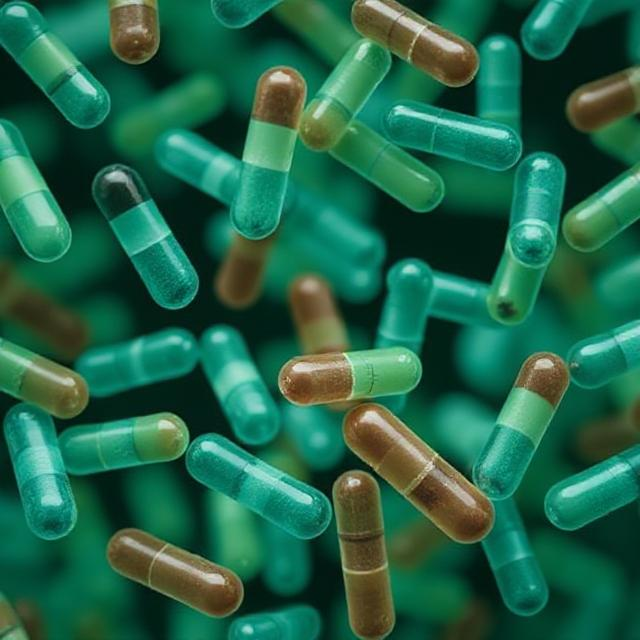In today’s digital age, social media has become an integral part of our daily lives. It’s how we stay connected, keep up with news, share experiences, and even make a living. However, there is an increasing body of evidence suggesting that prolonged social media use can negatively affect mental health, leading to issues such as anxiety, depression, and low self-esteem. This has sparked a growing trend of social media detoxes — intentional breaks or time away from social media platforms to improve mental well-being.
But does taking a social media detox actually improve mental health? Let’s take a closer look at the potential benefits and drawbacks of going offline for a while.
1. The Psychological Impact of Social Media
Before diving into the benefits of a social media detox, it’s important to understand how social media can impact mental health.
- Social Comparison: One of the biggest negative effects of social media is the tendency to compare oneself to others. Social media often showcases only the best moments of people’s lives — vacations, achievements, and celebrations. This can lead to feelings of inadequacy, jealousy, or “fear of missing out” (FOMO). Constant exposure to these curated versions of reality can create unrealistic expectations and diminish self-worth.
- Cyberbullying and Harassment: The anonymity provided by online platforms can lead to an increase in harmful behaviors like cyberbullying and trolling. This can cause significant distress for individuals, particularly for younger users who may already be dealing with issues of self-esteem and social belonging.
- Information Overload and Anxiety: The constant stream of information, updates, and news can overwhelm the brain, especially when much of it is negative or stressful. Research has shown that the pressure to stay informed on everything, from world events to pop culture, can contribute to feelings of anxiety and stress.
- Addiction and Sleep Disruption: Social media is designed to be engaging, using algorithms to keep users hooked. This can lead to social media addiction, where people feel the need to check their feeds compulsively. The blue light emitted by screens can also disrupt sleep patterns, leading to poor rest and further contributing to mental health problems.
2. What Is a Social Media Detox?
A social media detox typically involves taking a break from all or specific platforms for a set period of time. It can range from a few days to several weeks, or even longer. Detoxing can be as simple as turning off notifications, limiting daily usage, or deleting apps entirely.
The goal is to disconnect from the constant demands of social media, reduce the mental clutter, and take time to focus on other aspects of life, such as real-world relationships, hobbies, or self-care.
3. Benefits of a Social Media Detox
Research and anecdotal evidence suggest several potential benefits of taking a social media detox, particularly for mental health.
- Reduced Stress and Anxiety: Studies have shown that time away from social media can lead to reduced levels of stress and anxiety. A study published in Computers in Human Behavior found that participants who took a break from social media for just a few days reported lower levels of stress and greater emotional well-being. Without the constant influx of news, notifications, and social comparisons, people often feel more at ease.
- Improved Self-Esteem: When people step away from social media, they can escape the pressure to present a perfect life or compare themselves to others. Self-esteem can improve as individuals reconnect with themselves, appreciating their own unique qualities and accomplishments rather than focusing on how they measure up to others online.
- Better Sleep: Social media use, especially before bed, has been linked to disrupted sleep patterns. Taking a break from screens, particularly in the evening, can help reset sleep habits. A better night’s sleep contributes to improved mood, cognitive function, and overall mental health.
- Increased Productivity: Without the constant distraction of social media, many individuals report feeling more productive. They can focus on work, hobbies, and personal goals without the temptation to check social media. This can help reduce stress related to procrastination and the feeling of never getting enough done.
- Enhanced Real-Life Connections: A detox can also allow individuals to reconnect with the people around them. Face-to-face interactions or deeper connections in real life can feel more fulfilling than online interactions. This social reconnection can boost mood and improve feelings of loneliness or isolation.
- Mindfulness and Self-Awareness: Stepping away from social media can also give individuals the space to reflect on their own habits and behaviors. It provides an opportunity to evaluate how social media affects their mood and mental well-being. This increased mindfulness can help individuals develop healthier relationships with technology going forward.
4. Challenges of a Social Media Detox
While the benefits of a detox can be significant, it’s not always easy to take a break from social media, and it may not be the solution for everyone. Here are some challenges people may encounter when attempting a social media detox:
- FOMO (Fear of Missing Out): For many, social media is a primary source of staying connected with friends, family, and current events. Taking a break can lead to feelings of isolation or missing out on important updates, events, or trends. For some, this fear can make it difficult to fully disconnect and enjoy the detox.
- Addiction and Habit: Social media is highly addictive. The constant stream of updates and dopamine hits can make it hard to step away, even if one knows that it’s affecting their mental health. Breaking the habit of checking apps or scrolling endlessly can be difficult, and individuals might relapse into old patterns quickly.
- Social and Professional Pressure: In some cases, social media is an important tool for professional networking, marketing, or staying in touch with colleagues and clients. People in industries like marketing, media, or entertainment may feel pressured to maintain an online presence, making a detox more complicated.
- Missing Key Support Systems: Some people rely on social media for social support, such as in online communities or support groups for specific mental health issues, chronic illnesses, or other challenges. Taking a break from social media could cut off access to these valuable networks, potentially leaving individuals feeling more isolated.
5. How to Make a Social Media Detox Effective
If you’re considering a social media detox, it’s important to approach it in a way that maximizes its benefits and minimizes potential challenges. Here are a few tips to make your detox more effective:
- Set Clear Goals: Decide what you want to achieve with your detox. Are you looking to reduce anxiety, improve sleep, or reconnect with loved ones? Having specific goals will help you stay focused and track your progress.
- Start Small: If the idea of a complete detox feels daunting, consider starting with a digital declutter or limiting social media time to specific periods of the day. Even small changes, like turning off notifications or taking one day off a week, can provide significant relief.
- Replace Social Media with Other Activities: To make the detox more effective, replace the time you would normally spend on social media with more fulfilling activities like reading, exercising, cooking, or spending time with loved ones.
- Track Your Mental Health: Keep a journal or reflect on your emotions during the detox. This can help you see how stepping away from social media impacts your mood, stress levels, and overall well-being.
- Gradual Re-Entry: Once your detox period is over, take it slow when re-entering the digital world. Instead of jumping back into your old social media habits, consider adopting more intentional ways to engage with social media — such as limiting the platforms you use, unfollowing accounts that don’t serve you, or setting time limits for usage.
6. Conclusion: Is a Social Media Detox Worth It?
The answer is yes, a social media detox can be an effective way to improve mental health for many people, particularly in terms of reducing stress, anxiety, and self-esteem issues. Taking a break from the constant demands of social media gives individuals the opportunity to reset, reflect, and focus on real-world connections and personal well-being.
However, it’s important to acknowledge that social media detoxes are not a one-size-fits-all solution. For some, the challenges of a detox — such as FOMO, professional obligations, or the addictive nature of social media — may make it difficult to fully disconnect. Ultimately, the key to improving mental health in the digital age is finding a balanced relationship with social media, one that allows for meaningful engagement without sacrificing mental well-being.






